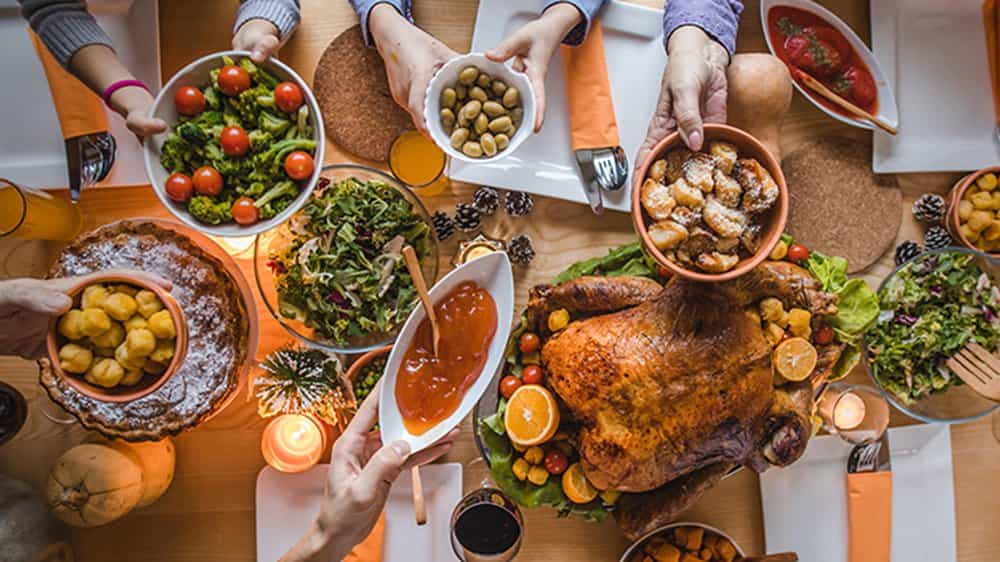Thanksgiving is a time for family and friends to come together. However, the holiday can also bring up sensitive topics, especially politics. Many families find that political discussions can lead to tension or arguments. To ensure that Thanksgiving remains a joyous occasion, consider some effective strategies to manage family dynamics.
Preparation is Key
Before the big day, think about the conversations that might arise. Are there family members with strong political opinions? If so, consider discussing ground rules for the gathering. This can help create a more stable environment for all.

Communicating with relatives ahead of time can ease tensions. It’s okay to express your desire for a peaceful gathering. Politely ask family members to temper political discussions. This way, everyone knows to respect these boundaries.
Focus on What Unites Us
Instead of diving into political topics, steer conversations toward common interests. Highlight shared experiences, traditions, and memories. Ask about family vacations or milestones. This can help rekindle bonds that may have been strained.
Additionally, consider focusing on gratitude. Share what everyone is thankful for. This creates a positive atmosphere. It reminds family members of their connections rather than differences.
Use a Neutral Setting
Changing your surroundings can influence discussions. If possible, hold Thanksgiving celebrations outdoors or in a spacious area. Fresh air can lighten the mood and promote a relaxed atmosphere. A different setting might also prevent conversations from becoming too heated.
The dining table can be a battleground for political views. To mitigate this, consider rearranging seating. Mix up family members who may have conflicting views. This encourages interaction among different perspectives in a more neutral way.
Be Mindful During Conversations
As conversations unfold, stay mindful of the atmosphere. If politics start creeping in, gently steer the discussion in a different direction. You might say, “That’s an interesting point, but let’s focus on something else for now.” Redirecting the conversation helps maintain a lighter mood.
If a heated topic arises, listen actively rather than reacting immediately. Show empathy, even if you disagree. Acknowledge what others are saying. This can help to diffuse tension and foster understanding.
Plan Engaging Activities
Organizing fun activities can distract from potential conflicts. Consider games or group activities that everyone can enjoy. Card games, board games, or outdoor sports can keep family members engaged. This can create laughter and camaraderie, reducing the likelihood of political debates.
Engage kids in activities as well. This brings joy to the gathering and provides a break from adult conversations. Perhaps have them work on crafts or play festive games. Keeping young ones entertained may help ease tensions among older generations.

Establishing Boundaries
If political discussion becomes unavoidable, establish boundaries. It’s acceptable to say, “I appreciate everyone’s thoughts, but let’s save political debates for another time.” Setting boundaries encourages respectful conversations. If someone crosses the line, calmly remind them of the established agreement.
Be prepared to exit conversations that escalate quickly. Sometimes it’s best to walk away rather than engage in an argument. It’s all about prioritizing a peaceful environment during the holiday.
Acknowledge Feelings but Stay Firm
Many people feel passionately about their beliefs. Acknowledge these feelings without validating hostile behavior. Encourage family members to share their perspectives. However, remind them that Thanksgiving is a time for gratitude and togetherness.
If someone becomes aggressive, calmly intervene. You might say, “Let’s agree to disagree on this topic. We can appreciate each other’s viewpoints without conflict.” This statement reaffirms your commitment to a peaceful gathering and redirects attention to more positive topics.
Know When to Change the Subject
When conversations heat up, it may be time to pivot. Introduce new topics that everyone can enjoy discussing. Family recipes, favorite movies, or upcoming holidays are excellent subjects. Shared interests foster a sense of connection.
Use humor whenever possible to lighten the mood. A well-timed joke can ease tension and redirect conversations. Laughter creates a more jovial atmosphere, allowing families to bond positively.

Focus on the Celebration
Ultimately, Thanksgiving is a celebration of gratitude. Keep this in mind throughout the gathering. Encourage family members to share what they appreciate about one another. This can go a long way in

















